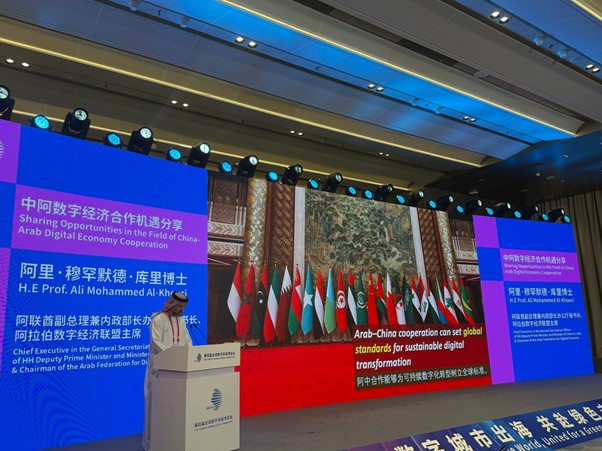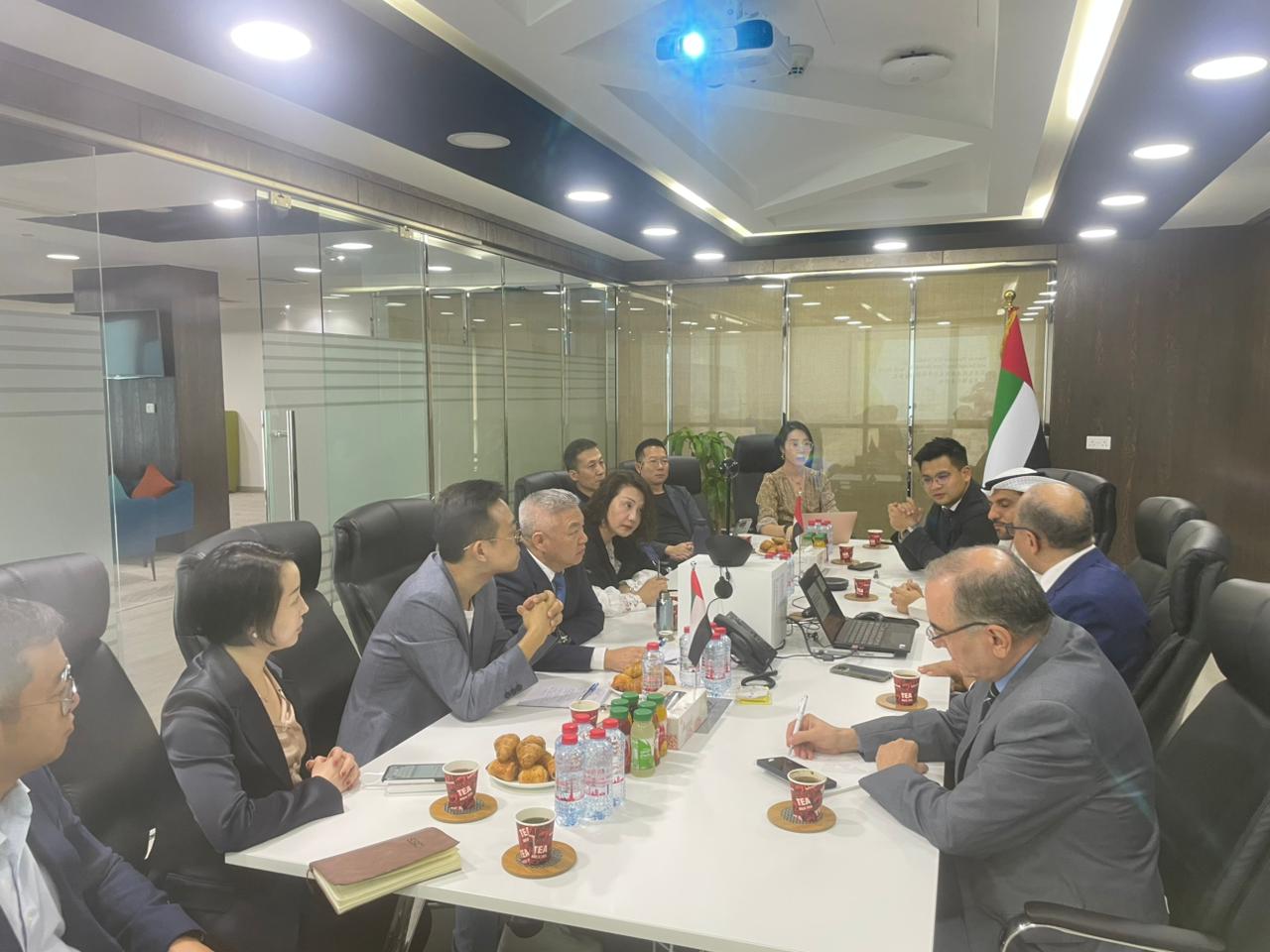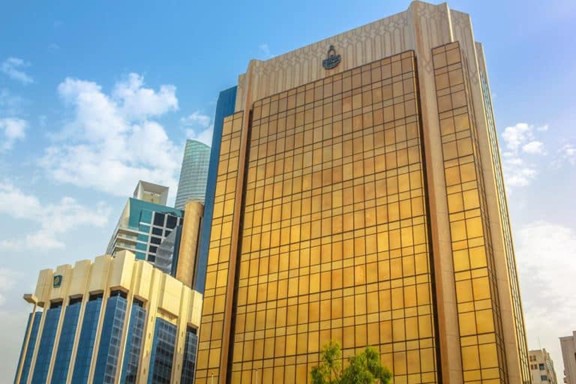Hangzhou – China
The Arab Federation for Digital Economy participated in a session titled “Digital Empowerment for Green Development” as part of the activities of the fourth Global Digital Trade Expo (GDTE 2025) held in Hangzhou, China.
His Excellency Dr. Ali Mohammed Al Khouri, Advisor to the Council of Arab Economic Unity and Chairman of the Arab Federation for Digital Economy, delivered a speech in which he emphasized that technology and the environment are no longer separate paths, but rather their integration has become the cornerstone of the future global economy. He pointed to the importance of promoting digital innovation to support sustainable development and the green economy.
Al-Khouri emphasized that the Arab Federation for Digital Economy was established as an international Arab organization to serve as a strategic platform for advancing digital transformation in the Arab region. He noted that digitization has transformed from a mere technical tool for daily transactions to the foundation for building a sustainable, competitive, and prosperous future.
He added that digital technologies, such as artificial intelligence, big data, and the Internet of Things, can transform resource efficiency, reduce emissions, and promote green growth. He explained that these technologies can boost global GDP and generate billions of dollars in savings, but they also carry increasing risks. Data centers consume more energy than some major economies, with demand expected to double by 2030. He emphasized that digital transformation cannot be considered progress if it leads to unsustainable consumption, which requires good governance and responsible innovation that balances prosperity and sustainability.
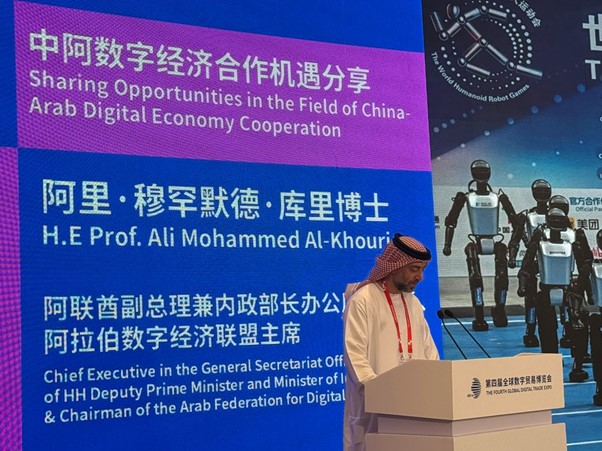
In this context, Al-Khouri reviewed the role of technology in smart agriculture and resource management, where AI-powered systems contribute to reducing water use and increasing productivity. He noted that the AI market in the forest protection sector alone is expected to jump from $2.5 billion currently to more than $24 billion by 2033. He emphasized that these innovations represent a lifeline for economies facing challenges such as water scarcity and food security, especially in the Arab region.
He also pointed to pioneering Arab models in combining technology and sustainability, such as Masdar City in the UAE, which is leading the way towards net-zero energy neutrality by reducing energy and water consumption and powering most of its facilities with renewable energy, and the NEOM project in Saudi Arabia, which relies on renewable energy and is expected to contribute up to $100 billion to Saudi Arabia’s GDP by 2030. He also highlighted the Mohammed bin Rashid Al Maktoum Solar Park in Dubai, one of the largest renewable energy projects in the world, which provides clean energy at a low cost and sets new standards for investment in green energy.
Al-Khouri explained that addressing climate challenges and digital transformations requires broad international cooperation, emphasizing that combining China’s expertise in green infrastructure and AI governance with the market and geographic potential of the Arab world represents a partnership with global impact.
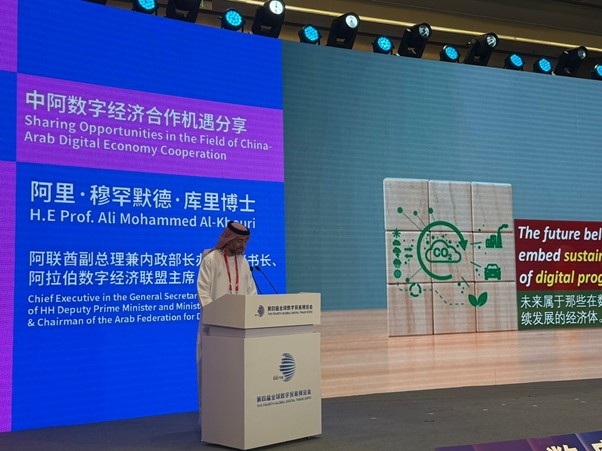
He proposed three strategic opportunities for Arab-Chinese cooperation: developing green data centers based on energy efficiency and carbon neutrality; employing digital tools for resource management, energy, and sustainable agriculture; and establishing smart economic and trade zones that integrate environmental governance standards in line with international commitments.
In concluding his remarks, Al-Khouri emphasized that digital transformation can be a double-edged sword; it can either exacerbate unsustainable consumption patterns or become a tool that enables societies to manage their resources more efficiently. He explained that the Arab Federation for Digital Economy, as an Arab organization operating under the umbrella of the Council of Arab Economic Unity and a member of the Arab councils and working groups of the League of Arab States, is committed, within the framework of its institutional mission, to developing sustainable digital initiatives and expanding the scope of work with Arab institutions and international partners to shape an advanced digital future that opens new horizons for growth and global cooperation.




